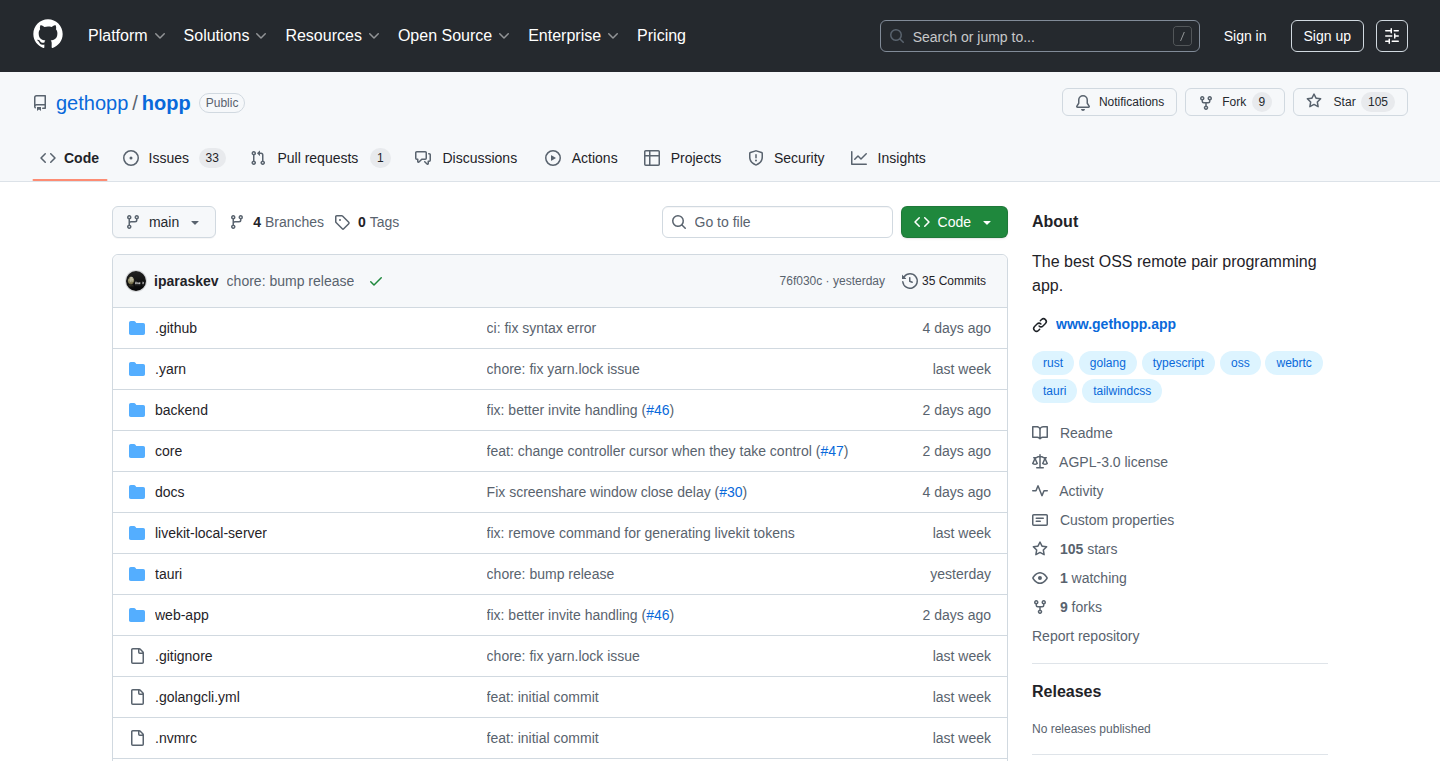

Highlight 1
Open-source and self-hosted nature provides cost control, customization, and no vendor lock-in.
Highlight 2
Real-time collaboration core to the product, enabling live screen sharing and synchronous work sessions for pair programming.
Highlight 3
Focus on a lean, developer-focused workflow (goal-driven tool aimed at reducing dependency on paid, feature-heavy platforms).

Improvement 1
Documentation and onboarding could be enhanced to help new users install, deploy, and start sessions quickly.
Improvement 2
Broader platform support and usability improvements (e.g., mobile or cross-browser reliability, accessibility) to reach more teams and devices.
Improvement 3
Ecosystem and integrations (editor plug-ins, IDE support, and workflow integrations) to expand usefulness beyond the browser-only experience.
Product Functionality
Consider adding: (1) multi-user session enhancements (beyond 2 participants) with clear session roles, (2) integration options for common code editors/IDEs and a lightweight in-browser editor mode, (3) session recording and playback for later review, (4) simplified one-click deployment guides and optional cloud hosting as a paid add-on to broaden adoption.
UI & UX
Improve onboarding with an interactive quickstart, refine the visual design for clarity and consistency, ensure accessibility improvements (keyboard navigation, high-contrast mode), and provide a responsive layout that works well on different screen sizes and devices.
SEO or Marketing
Enhance the project site with a clear value proposition, feature comparison against competitors, benefit-focused use cases, and rich documentation. Add tutorials, case studies, and a dedicated page for self-hosting options. Optimize meta titles/descriptions and include keywords like 'open-source pair programming', 'real-time screen sharing', and 'self-hosted developer tools'.
MultiLanguage Support
Add internationalization (i18n) for the UI and documentation. Provide language switcher with translations for main screens, help/docs, and release notes. Consider community-driven translations and support for right-to-left languages to broaden reach.
- 1
What is Hopp and who is it for?
Hopp is an open-source, self-hosted tool for real-time pair programming. It’s designed for developers and teams who want a low-cost alternative to proprietary collaboration tools while maintaining control over their hosting and data.
- 2
How do I get started with Hopp?
Clone the repository from GitHub, follow the README for setup and deployment instructions (including dependencies and hosting options like Docker), then run the app in your environment to create and join collaboration sessions.
- 3
Is Hopp free to use and can I self-host it?
Yes. Hopp is open-source and free to use. You can self-host to avoid vendor subscriptions and tailor the setup to your infrastructure.
- 4
How can I contribute or get help?
Contributions are welcome via the GitHub repository. Check the CONTRIBUTING guidelines, raise issues, and participate in discussions. You can also refer to the README for developer setup and collaboration details.
